National Eye Health Week
Sight is the sense people fear losing the most, yet many of us don’t know how to look after our eyes, National Eye Health Week aims to change all that!
So whether you're scheduling a routine check-up or seeking comprehensive eye care advice, we're here to help you see better and live better.
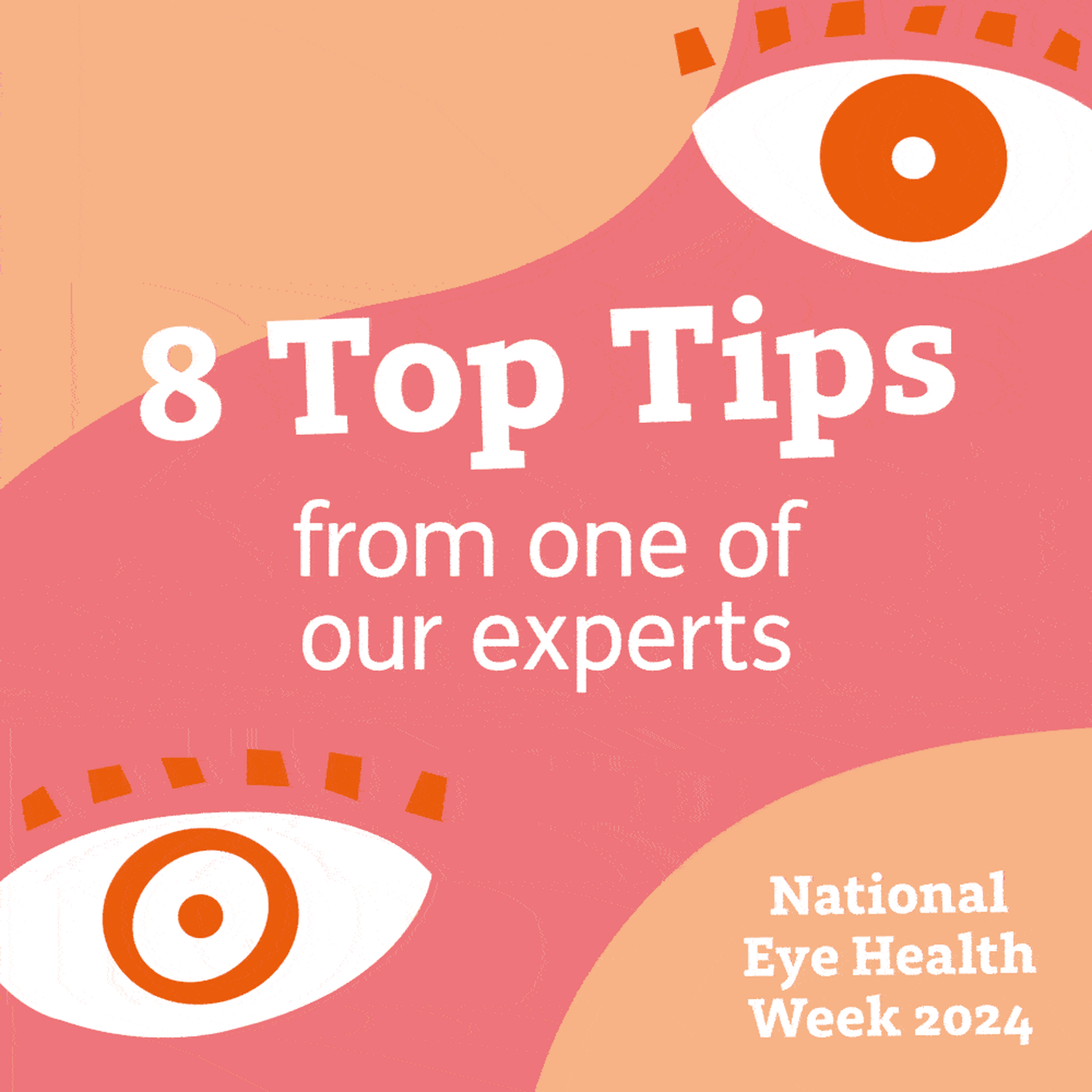
The RNIB reports that about one in five people aged 75 and over are living with sight loss in the UK.
The College of Optometrists highlights that 74% of sight loss cases could be prevented or delayed with regular eye tests.
The NHS generally recommend that we have our eyes tested every 2 years.
The RNIB estimated that one in four women will develop sight loss in their lifetime, compared to one in eight men.
How to look after your eyes
Maintaining healthy eyes is essential for ensuring a lifetime of clear vision.
- Have regular eye tests to ensure that problems are detected and treated promptly. The NHS generally recommend that we have our eyes tested every 2 years.
- Recognise warning signs (e.g. blurriness, headaches, itchiness, sensitivity to light).
- Ensure your glasses prescription is up to date to prevent eye strain, eye fatigue and headaches.
- Lead a healthy lifestyle by ensuring you have a balanced diet, get enough sleep and avoid smoking.
- Protect your eyes against harmful UV rays and potential hazards by wearing sunglasses or protective eyewear.
- Manage your screen time and ensure you set up your screens correctly.
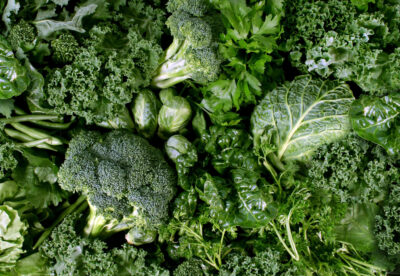
10 best foods for eye health
There is little evidence to suggest that food can improve your vision (yes, even carrots will not be able to increase your visual ability!). However, some foods may help to maintain the health of your eyes.
Best foods for eye health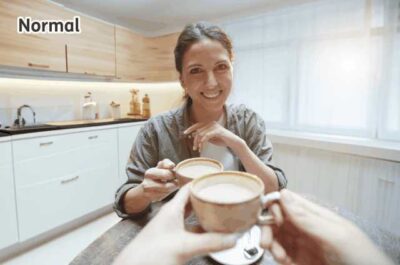
What is vision like with an eye condition?
Imagine reading a book where the words in the middle of the page are missing - that's a reality for those with advanced macular degeneration. And did you know that cataracts can blur your vision, making it seem like you're looking through a foggy window?
Vision with eye conditions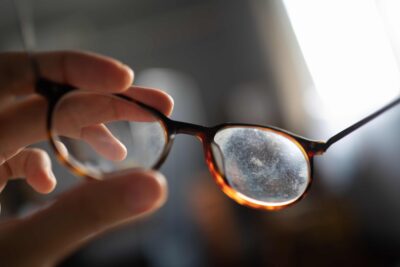
How do I know if I need new glasses?
Our eyesight tends to change very gradually and our eyes are good at compensating for these minor changes. This means that figuring out when you need a new pair of glasses isn't always straightforward. Discover 10 tell-tale signs that your current glasses might not be up to the task anymore.
10 signs you need new glasses
What happens to our eyes as we get older?
As we grow older, our bodies undergo several transformations, and our eyes are no exception.
Good eyesight plays a pivotal role in your wellbeing and is a significant factor in safety, retaining independence, and maintaining a good quality of life as we get older.
What happens to our eyes as we get older?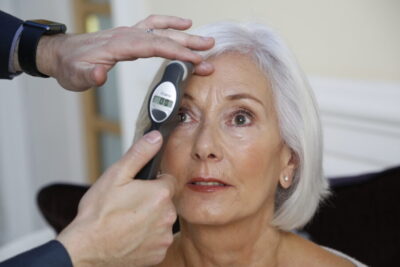
What happens at a home eye test?
Here at OutsideClinic, we make eye care accessible for those who cannot pop down to the high street unaccompanied. The main difference between a home eye test and one you'd get at a high street optician, is that a home test is carried out in the comfort of your home using portable equipment.
What happens at a home eye test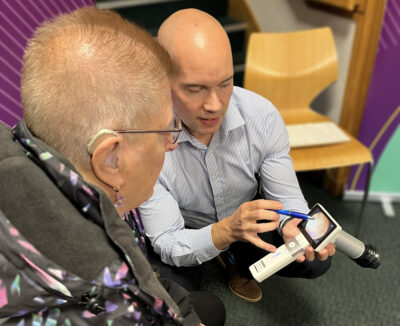
OutsideClinic provides eye tests for homeless community
In the lead-up to National Eye Health Week, our team visited the Pilgrim Centre, where Alternative Angels serve meals to those in need. During this event, we provided free eye health checks to individuals who might not otherwise have access to such essential services.
Eye health FAQs
The eyes are the only place in the body where we can see veins and arteries without invasive procedures. Using a digital retina camera, we are able to take a photo of the eye where we can see the arteries and veins.
Abnormalities in arteries and veins can tell us a lot about our overall health. This means that it’s not always just eye-related conditions that can be detected. An optician will be able to detect other systemic health conditions like:
- diabetes
- high blood pressure
- high cholesterol
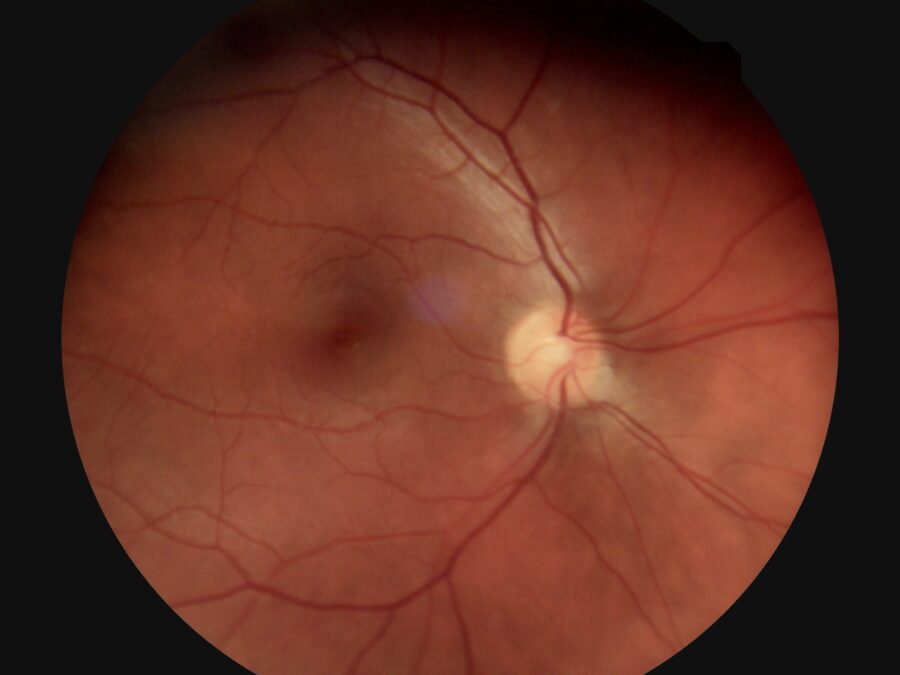
Although it is much less common, an eye test can also detect things like:
- eye cancers
- brain tumours
- detached retinas
- sinus infections
Please note, the conditions discussed in this article is not exhaustive. It is important to remember that if you have any concerns or notice any symptoms related to your eyes or overall health, it is crucial to consult with a healthcare professional.
Drinking too much alcohol can temporarily blur your vision and even lead to more serious problems like dry eyes and double vision.
Over time, heavy drinking might increase your risk of developing age-related vision loss, known as macular degeneration, and can damage the nerves in your eyes.
Excessive alcohol can cause toxic amblyopia in extreme cases, especially when combined with poor nutrition. Toxic amblyopia is a serious condition that involves damage to the optic nerves, which are crucial for vision.
To keep your eyes healthy, it's best to drink alcohol in moderation.
The myth that carrots improve eyesight can be traced back to World War II British propaganda, which claimed that their pilots' excellent night vision was due to a carrot-rich diet. This was a cover story for their advances in radar technology.
While carrots are indeed rich in vitamin A, a nutrient vital for eye health, they won't significantly improve your eyesight unless you are deficient in this nutrient.
Book a home eye test
Please fill in the form to request a home eye test and one of our team will be in touch.
If you have any questions, please call our friendly team on 0800 60 50 40.
Book an eye test today